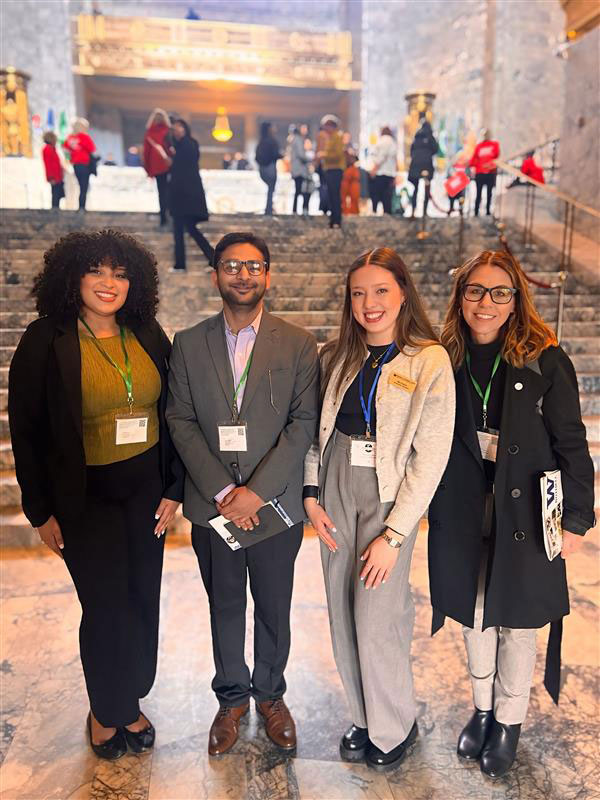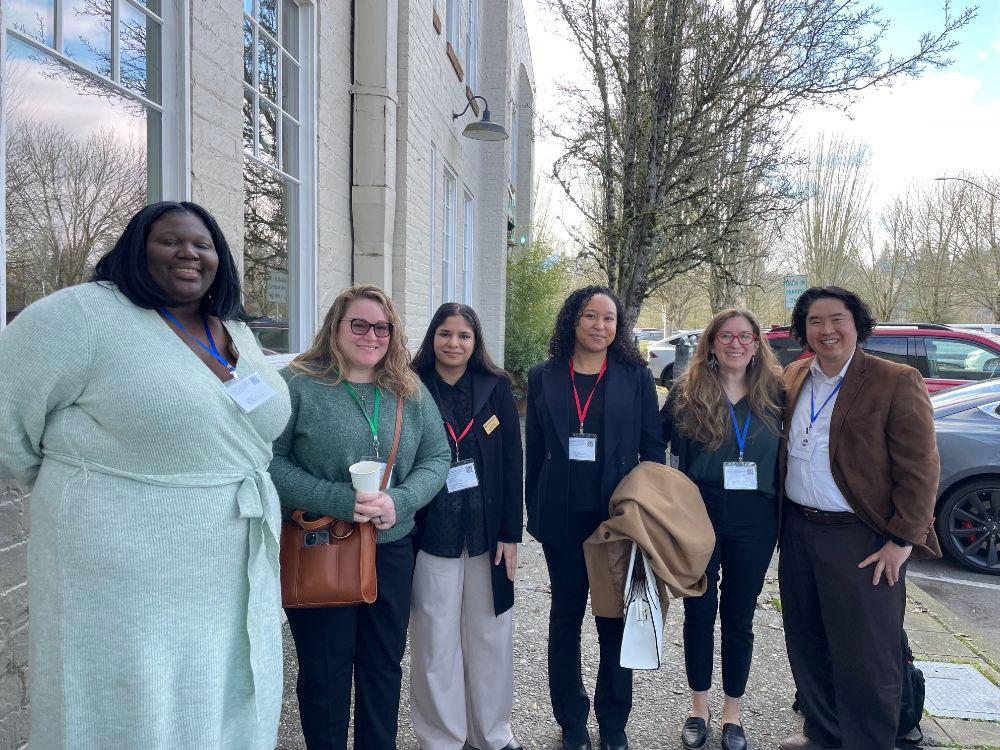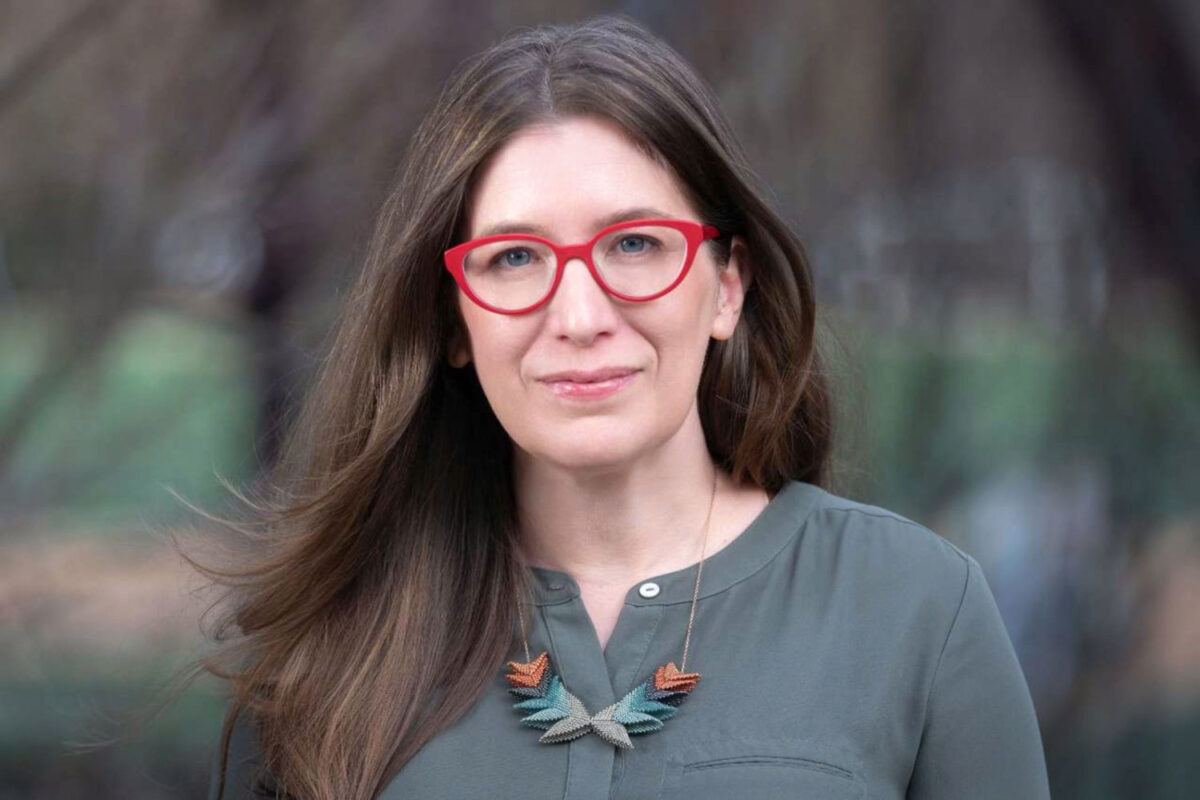How do we amplify voices in support of public health, especially when confidence in our democratic institutions has fallen to historic lows?
In the University of Washington Bothell’s Community Health & Social Justice program, the question always resonates. And for two graduate students in this School of Nursing & Health Studies program, the answer involves harnessing personal loss and struggle to fuel a passion for improving lives.
LaNiqua Bell and Arslan (who goes by a single name) are speaking up and taking action on public health issues close to their hearts.
Advocacy and healing
Bell already had her hands full when she enrolled in graduate school. A Tacoma resident, she’s a single mom in her mid-30s, working a full-time job as she pursues her master’s degree in Community Health & Social Justice. She also carries the burden of a monumental loss: Her son Kyren died in 2018 at 7 months old. Bell attributes Kyren’s death to systemic racism in health care.
“Part of the healing for me,” she said, “is asking, ‘How do I change laws in this state that would protect Black babies from bias?’”
Until she dived into a “Health Policy Systems and Advocacy” class in January, the legislative process felt very intimidating. The ins and outs of government procedure, the political structure, the movement of bills — it was all foreign territory.
Bells’ classmate Arslan, a native of Pakistan who also came to UW Bothell seeking a path to effective advocacy, has a similarly personal story that motivates him on his quest for education and change.
Passion for change
After moving to the United States on a Fulbright scholarship, Arslan married a white South African woman in 2021. A week later, she had a mental breakdown, and it took five months to get an appointment for a diagnosis.

“The way the medical system treated us was awful,” Arslan said. “On low-income insurance, there were no options except for rehab, and counselor appointments were unavailable for months.”
He was shocked not only by the rudeness of the hospital front desk staff but by the fact that no single hospital in Washington was devoted exclusively to the treatment of mental health issues. How, he wondered, is it possible that so many people living in one of the world’s richest countries face the same struggle to get care?
“It’s a basic fundamental right to have access to medical services,” he said. “The problem isn’t money; it’s the structure shaped at a high level.”
The marriage ended in divorce, but it sparked a determination in Arslan to fight against the stigma and systemic failures in mental health care. He formed a passion for children’s mental health and knew that any improvement had to start at the grassroots level. But, until winter quarter, he was unfamiliar with the workings of local and state governments.
Civics on steroids
Dr. Nora Kenworthy, professor in the School of Nursing & Health Studies, leads the “Health Policy, Systems and Advocacy” class, which is closely aligned to the UW’s Civic Health Initiative. That effort seeks to expand everyday engagement with democracy, expanding access to the institutions that protect civil society.
“We’re integrating it into the very fabric of our curriculum and our teaching,” said Kenworthy.
To try to bring it into the fabric of Washington more broadly, Bell, Arslan and two dozen other graduate students spent 10 weeks tracking public health legislation as it moved through the state legislature in Olympia. They formed interest groups around several bills tackling issues from workplace violence to harmful chemicals to sanctuary cities and states.
Students also dug into practical exercises to learn the legislative process. They wrote briefs. They crafted and recorded 60-second speeches as if they were testifying before a legislative committee. They tracked every movement of their bills in Olympia. “We had to know our bill like white on rice,” Bell said.
Heartache and heartbeats
Bell said she was skeptical about the real-world relevance of the assignments when she and 15 classmates arrived in Olympia on March 6 for Public Health Legislative Education Day. As a first-time visitor, she noticed the lack of ethnic diversity in the crowd. The legislative welcome seemed chilly (where were the greeters?), the Capitol layout daunting, and the land acknowledgment nonexistent. The day didn’t look promising.

Arslan was similarly unnerved by the formal protocols and the antique buildings. “It was like going to meet a king,” he says. “Legislators are normal people like us, but it’s so challenging to interact with them.”
On his own, he visits churches and mosques in the Lynnwood area, seeking out the Latino and Muslim communities — where stigma about mental health issues can run high — to educate them about kids’ mental health. “I come from a culture where we take care of each other,” said Arslan of his efforts. “My purpose is to work on a grassroots level to teach kindness and empathy for each other, which we are missing in this individualistic society.”
In Olympia, he navigated the system to meet with Sen. Mark Liias (D-Edmonds) about Senate Bill 5126, which aims to create a statewide network for student mental and behavioral health. “Every story matters,” Arslan said. “This is not just a concept but a real, powerful force. Advocacy is the heartbeat of change.”
The power of story
Meanwhile, Bell joined forces with staff from the Tacoma Public Health Department. As she listened to their polished one-minute testimonies, her class assignments suddenly clicked. She also witnessed Black women and BIPOC people in leadership positions at the Tacoma agency. “That was very helpful to me,” she said.
Bell and the team met with legislative aide David Barnes and House Speaker Laurie Jinkins (D-Tacoma), who is also a leader in the public health sphere. They first discussed House Bill 1162, which seeks to protect health care workers against workplace violence. Then, Bell got the opportunity to speak about her cause.
Throughout the quarter, she had been advised to “stick to your story” — and that’s what she did in Olympia. “They heard me and responded,” she said.
By the end of Legislative Education Day, new avenues had opened for Bell. She was encouraged to earn her doctorate and pursue politics. She got a lead on a fellowship and learned about internship opportunities with the Tacoma Health Department. And she received an invitation to follow up on better protections for Black babies.
“I found my purpose,” Bell said.
“My purpose is to work on a grassroots level to teach kindness and empathy for each other, which we are missing in this individualistic society.”
Arslan, graduate student, Community Health & Social Justice
Hope and inspiration
The students’ takeaways are a far cry from the beginning of the quarter when students expressed strong skepticism about national politics. Then, they asked Professor Kenworthy, “Why get involved in a broken system?”
Sen. June Robinson (D-Everett), chair of the Ways & Means Committee and a member of the Health & Long-Term Care Committee, spoke with the class during the quarter.
“Effective advocacy can transform public health and create a healthier world for everyone,” she said. “By listening to people who face the biggest health challenges, we create solutions that help all Washingtonians to thrive.”
What the students experienced firsthand in Olympia was indeed different than they had feared. Bell, Arslan and their classmates saw movement on their bills, observed politicians working across the aisle and discovered unexpected advocates for public health.
This all had an impact on Kenworthy as well. “We draw some hope and inspiration from that,” she said.
National Public Health Week falls on April 7-13, with a full day devoted to advocacy.




